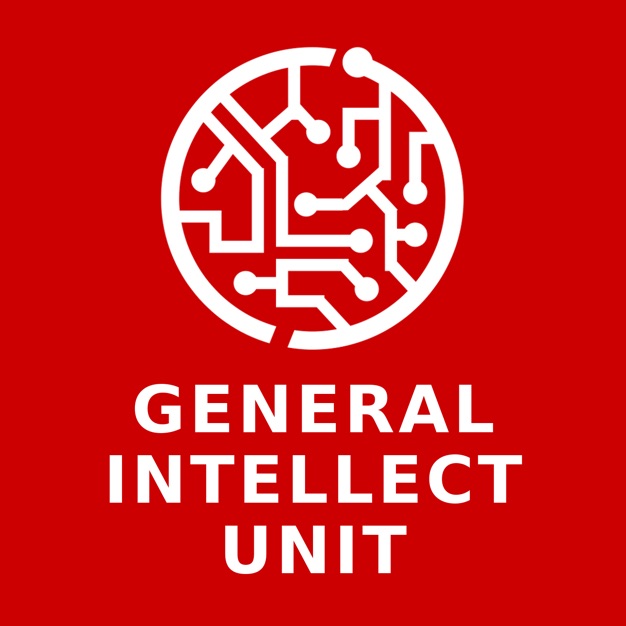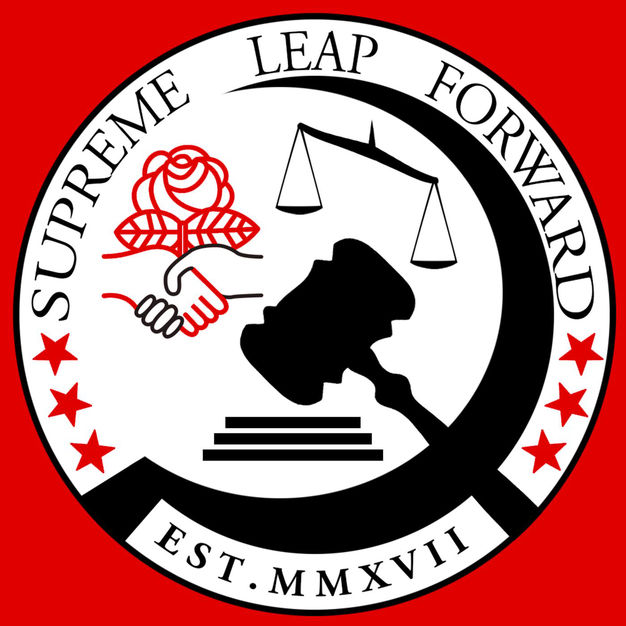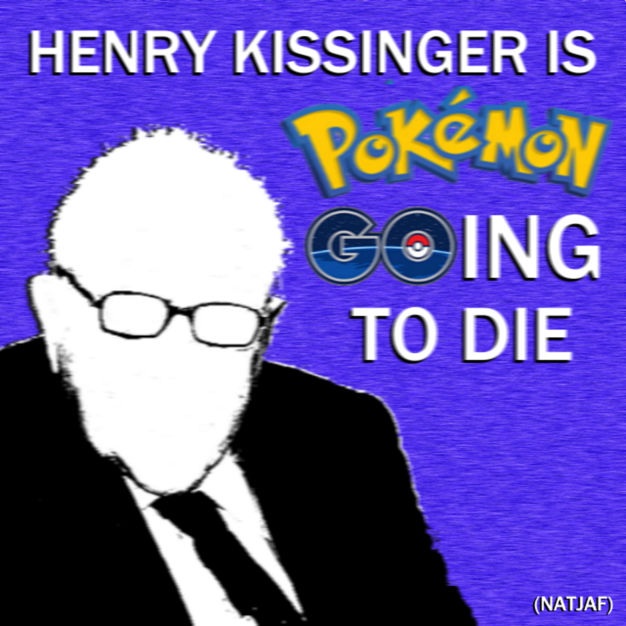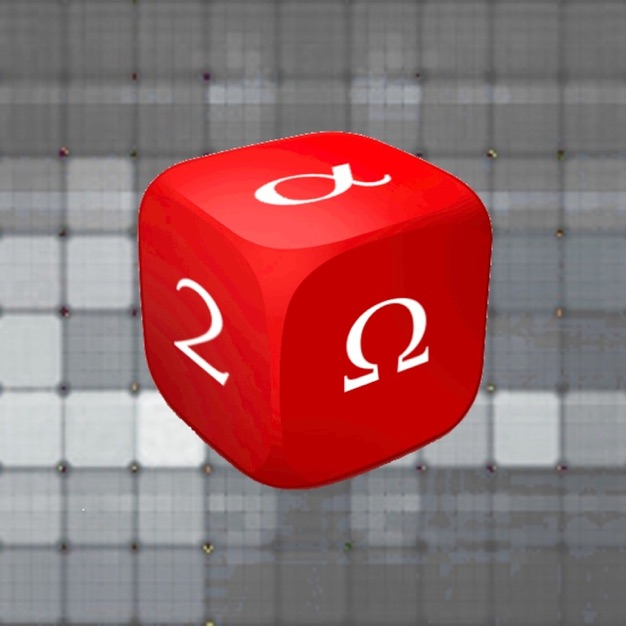
General Intellect Unit
General Intellect Unit
Analyzing the intersection of Technology, Politics and Philosophy, from an unapologetically Leftist perspective.
- 1 hour 3 minutes111 - Exit Code 0
In which the show ends, and Kyle & June reflect on the project.
Thank you all.
Links:
1 April 2024, 3:36 pm - 2 hours 8 minutes110 - Aesthetics of Democratic Economic Planning
In which Kyle interviews Eric Meier on his recent exhibition "Art, Design, Aesthetics of Democratic Economic Planning".
If you like the show, consider supporting us on Patreon.
Links:
- A tour of the exhibition, on Youtube
- "About my exhibition 'Art, Design, Aesthetics of Democratic Economic Planning'"
- Eric on Twitter
- Eric on Instagram
- General Intellect Unit on iTunes
- http://generalintellectunit.net
- Support the show on Patreon
- https://twitter.com/giunitpod
- General Intellect Unit on Facebook
- General Intellect Unit on archive.org
- Emancipation Network
8 March 2024, 4:08 pm - 1 hour 26 minutes109 - Computer Power and Human Reason, Part 6
In which we are joined by Ezri of Swampside Chats, to continue our discussion of "Computer Power and Human Reason: From Judgement to Calculation" by Joseph Weizenbaum. In this episode we cover the third an fourth chapters of the book.
Computer Power and Human Reason: From Judgment to Calculation (1976) by Joseph Weizenbaum displays the author's ambivalence towards computer technology and lays out the case that while artificial intelligence may be possible, we should never allow computers to make important decisions because computers will always lack human qualities such as compassion and wisdom.
Weizenbaum makes the crucial distinction between deciding and choosing. Deciding is a computational activity, something that can ultimately be programmed. It is the capacity to choose that ultimately makes one a human being. Choice, however, is the product of judgment, not calculation. Comprehensive human judgment is able to include non-mathematical factors such as emotions. Judgment can compare apples and oranges, and can do so without quantifying each fruit type and then reductively quantifying each to factors necessary for mathematical comparison.
If you like the show, consider supporting us on Patreon.
Links:
9 February 2024, 3:18 pm - 58 minutes 47 seconds108 - Computer Power and Human Reason, Part 5
In which we are joined by Ezri of Swampside Chats, to continue our discussion of "Computer Power and Human Reason: From Judgement to Calculation" by Joseph Weizenbaum. In this episode we cover the second chapter of the book.
Computer Power and Human Reason: From Judgment to Calculation (1976) by Joseph Weizenbaum displays the author's ambivalence towards computer technology and lays out the case that while artificial intelligence may be possible, we should never allow computers to make important decisions because computers will always lack human qualities such as compassion and wisdom.
Weizenbaum makes the crucial distinction between deciding and choosing. Deciding is a computational activity, something that can ultimately be programmed. It is the capacity to choose that ultimately makes one a human being. Choice, however, is the product of judgment, not calculation. Comprehensive human judgment is able to include non-mathematical factors such as emotions. Judgment can compare apples and oranges, and can do so without quantifying each fruit type and then reductively quantifying each to factors necessary for mathematical comparison.
If you like the show, consider supporting us on Patreon.
Links:
- Computer Power and Human Reason on Wikipedia
- Weizenbaum's Nightmares, on The Guardian
- Inside the Very Human Origin of the Term “Artificial Intelligence”
- General Intellect Unit on iTunes
- http://generalintellectunit.net
- Support the show on Patreon
- https://twitter.com/giunitpod
- General Intellect Unit on Facebook
- General Intellect Unit on archive.org
- Emancipation Network
25 January 2024, 5:04 pm - 1 hour 22 minutes107 - Computer Power and Human Reason, Part 4
In which we are joined by Ezri of Swampside Chats, to continue our discussion of "Computer Power and Human Reason: From Judgement to Calculation" by Joseph Weizenbaum. In this episode we cover the first chapter of the book.
Computer Power and Human Reason: From Judgment to Calculation (1976) by Joseph Weizenbaum displays the author's ambivalence towards computer technology and lays out the case that while artificial intelligence may be possible, we should never allow computers to make important decisions because computers will always lack human qualities such as compassion and wisdom.
Weizenbaum makes the crucial distinction between deciding and choosing. Deciding is a computational activity, something that can ultimately be programmed. It is the capacity to choose that ultimately makes one a human being. Choice, however, is the product of judgment, not calculation. Comprehensive human judgment is able to include non-mathematical factors such as emotions. Judgment can compare apples and oranges, and can do so without quantifying each fruit type and then reductively quantifying each to factors necessary for mathematical comparison.
If you like the show, consider supporting us on Patreon.
Links:
- Computer Power and Human Reason on Wikipedia
- Weizenbaum's Nightmares, on The Guardian
- Inside the Very Human Origin of the Term “Artificial Intelligence”
- General Intellect Unit on iTunes
- http://generalintellectunit.net
- Support the show on Patreon
- https://twitter.com/giunitpod
- General Intellect Unit on Facebook
- General Intellect Unit on archive.org
- Emancipation Network
21 December 2023, 9:00 am - 1 hour 15 minutes106 - Computer Power and Human Reason, Part 3
In which we are joined by Ezri of Swampside Chats, to continue our discussion of "Computer Power and Human Reason: From Judgement to Calculation" by Joseph Weizenbaum. In this episode we cover the prefaces, introduction, and chapter one.
Computer Power and Human Reason: From Judgment to Calculation (1976) by Joseph Weizenbaum displays the author's ambivalence towards computer technology and lays out the case that while artificial intelligence may be possible, we should never allow computers to make important decisions because computers will always lack human qualities such as compassion and wisdom.
Weizenbaum makes the crucial distinction between deciding and choosing. Deciding is a computational activity, something that can ultimately be programmed. It is the capacity to choose that ultimately makes one a human being. Choice, however, is the product of judgment, not calculation. Comprehensive human judgment is able to include non-mathematical factors such as emotions. Judgment can compare apples and oranges, and can do so without quantifying each fruit type and then reductively quantifying each to factors necessary for mathematical comparison.
If you like the show, consider supporting us on Patreon.
Links:
- Computer Power and Human Reason on Wikipedia
- Weizenbaum's Nightmares, on The Guardian
- Inside the Very Human Origin of the Term “Artificial Intelligence”
- General Intellect Unit on iTunes
- http://generalintellectunit.net
- Support the show on Patreon
- https://twitter.com/giunitpod
- General Intellect Unit on Facebook
- General Intellect Unit on archive.org
- Emancipation Network
6 December 2023, 3:08 pm - 1 hour 23 minutes105 - Computer Power and Human Reason, Part 2
In which we are joined by Ezri of Swampside Chats, to continue our discussion of "Computer Power and Human Reason: From Judgement to Calculation" by Joseph Weizenbaum.
Computer Power and Human Reason: From Judgment to Calculation (1976) by Joseph Weizenbaum displays the author's ambivalence towards computer technology and lays out the case that while artificial intelligence may be possible, we should never allow computers to make important decisions because computers will always lack human qualities such as compassion and wisdom.
Weizenbaum makes the crucial distinction between deciding and choosing. Deciding is a computational activity, something that can ultimately be programmed. It is the capacity to choose that ultimately makes one a human being. Choice, however, is the product of judgment, not calculation. Comprehensive human judgment is able to include non-mathematical factors such as emotions. Judgment can compare apples and oranges, and can do so without quantifying each fruit type and then reductively quantifying each to factors necessary for mathematical comparison.
If you like the show, consider supporting us on Patreon.
Links:
- Computer Power and Human Reason on Wikipedia
- Weizenbaum's Nightmares, on The Guardian
- Inside the Very Human Origin of the Term “Artificial Intelligence”
- General Intellect Unit on iTunes
- http://generalintellectunit.net
- Support the show on Patreon
- https://twitter.com/giunitpod
- General Intellect Unit on Facebook
- General Intellect Unit on archive.org
- Emancipation Network
22 November 2023, 3:26 pm - 1 hour 15 minutes104 - Computer Power and Human Reason, Part 1
In which we are joined by Ezri of Swampside Chats, to begin a series on "Computer Power and Human Reason: From Judgement to Calculation" by Joseph Weizenbaum.
Computer Power and Human Reason: From Judgment to Calculation (1976) by Joseph Weizenbaum displays the author's ambivalence towards computer technology and lays out the case that while artificial intelligence may be possible, we should never allow computers to make important decisions because computers will always lack human qualities such as compassion and wisdom.
Weizenbaum makes the crucial distinction between deciding and choosing. Deciding is a computational activity, something that can ultimately be programmed. It is the capacity to choose that ultimately makes one a human being. Choice, however, is the product of judgment, not calculation. Comprehensive human judgment is able to include non-mathematical factors such as emotions. Judgment can compare apples and oranges, and can do so without quantifying each fruit type and then reductively quantifying each to factors necessary for mathematical comparison.
If you like the show, consider supporting us on Patreon.
Links:
- Computer Power and Human Reason on Wikipedia
- Weizenbaum's Nightmares, on The Guardian
- Inside the Very Human Origin of the Term “Artificial Intelligence”
- General Intellect Unit on iTunes
- http://generalintellectunit.net
- Support the show on Patreon
- https://twitter.com/giunitpod
- General Intellect Unit on Facebook
- General Intellect Unit on archive.org
- Emancipation Network
9 November 2023, 8:34 am - 1 hour 58 minutes103 - Entangled Life, Part 3
In which we finish our reading of "Entangled Life" by Merlin Sheldrake.
The more we learn about fungi, the less makes sense without them.
They can change our minds, heal our bodies and even help us avoid environmental disaster; they are metabolic masters, earth-makers and key players in most of nature's processes. In Entangled Life, Merlin Sheldrake takes us on a mind-altering journey into their spectacular world, and reveals how these extraordinary organisms transform our understanding of our planet and life itself.If you like the show, consider supporting us on Patreon.
Links:
28 September 2023, 5:44 pm - 1 hour 59 minutes102 - Entangled Life, Part 2
In which we continue our reading of "Entangled Life" by Merlin Sheldrake.
The more we learn about fungi, the less makes sense without them.
They can change our minds, heal our bodies and even help us avoid environmental disaster; they are metabolic masters, earth-makers and key players in most of nature's processes. In Entangled Life, Merlin Sheldrake takes us on a mind-altering journey into their spectacular world, and reveals how these extraordinary organisms transform our understanding of our planet and life itself.If you like the show, consider supporting us on Patreon.
Links:
7 September 2023, 5:45 pm - 1 hour 44 minutes101 - Entangled Life, Part 1
In which we read "Entangled Life" by Merlin Sheldrake.
The more we learn about fungi, the less makes sense without them.
They can change our minds, heal our bodies and even help us avoid environmental disaster; they are metabolic masters, earth-makers and key players in most of nature's processes. In Entangled Life, Merlin Sheldrake takes us on a mind-altering journey into their spectacular world, and reveals how these extraordinary organisms transform our understanding of our planet and life itself.If you like the show, consider supporting us on Patreon.
Links:
3 July 2023, 1:06 pm - More Episodes? Get the App
Your feedback is valuable to us. Should you encounter any bugs, glitches, lack of functionality or other problems, please email us on [email protected] or join Moon.FM Telegram Group where you can talk directly to the dev team who are happy to answer any queries.
 Supreme Leap Forward
Supreme Leap Forward
 Henry Kissinger Is Pokemon Going To Die
Henry Kissinger Is Pokemon Going To Die
 Ashes Ashes
Ashes Ashes
 From Alpha To Omega
From Alpha To Omega